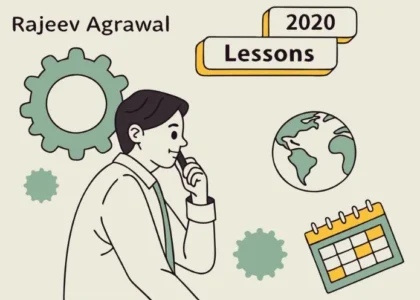I wrote an article on “What Matters in Investing”. In that article, I listed out the key aspects that are required to be successful in investing. In the next few articles, I will be doing a deep dive into each of these aspects. Today we will focus on the importance of thinking like a businessman (owner). These articles will be structured to answer the following:
- Why? – Why should we think like an owner?
- How? – What steps/practices can we follow to think more like an owner?
Why?
There are a few key advantages that can accrue to an investor if we can think like an owner:
- Create massive wealth over time: If one looks at the list of top 5 richest people in Forbes 2016, it includes Bill Gates ($75Bn), Amancio Ortega ($67Bn), Warren Buffett ($61Bn), Carlos Slim ($51Bn) and Jeff Bezos ($45Bn). All of them have a few common characteristics:
- All of them run/own/founded the businesses – Microsoft, Zara, Berkshire Hathaway, Group Carso, and Amazon respectively.
- All of them have been at it for a long time – 1975, 1975, 1970, 1966, and 1994 respectively.
An investor is in the same shoes as some of these luminaries i.e. they are a (part) owner of the businesses. If the business has good fundamentals, is run by an intelligent fanatic, and has a long runway, one can do very well financially by sticking to it for a long time.
While we may not get the satisfaction of being on the cover of prominent publications, we can financially do very well for ourselves. Significant wealth created by prominent investors like Warren Buffett, Charlie Munger, John Templeton, Seth Klarman, Tom Russo, Donald Yacktman, Mohnish Pabrai, Guy Spier, and many-many more are a testament to the same.
Read more- Lead a more fulfilled life: Investing is the ultimate leverage of time one can get. Once we have invested in good businesses with trustworthy management over the long term (thought like a businessman) we can focus on things that are important to us. Thus the quality of life improves significantly. An apt quote from Warren Buffett on this topic “If you don’t find a way to make money while you sleep, you will work until you die.” For me personally, thinking like a businessman has allowed time for the following:
- Work with people whom I want to work it: This applies both for the companies that we invest in as well as the investors for whom we invest. Life is too short to work with people who make your stomach churn. Besides, it is good karma!
- Set your own pace: When I was a student, I used to enjoy afternoon naps. These naps would clear my mind and help me focus on the task at hand. Since starting my firm, I have been able to re-create the same and it has helped me immensely.
- Spend time on things that are important to me: These include reading books and articles, reading about companies (both existing holdings and new opportunities), spending time with family on physical fitness, and, above all, bringing better people into my ecosystem.
How?
While most investors realize that investing in company is being a part owner of a business, they slip (ever so gently) from that bandwagon. The siren song that the market is playing is too hard to resist.
A live illustration of the above is the Indian IPO markets which are currently in full bloom. Every week multiple companies come out with their IPOs. Recently, a contract manufacturing company came out with an IPO. Investors (if you can call them that) bid for 100 the amount of shares that were being offered. A comment in one of the WhatsApp groups captured the current IPO craze perfectly, “Don’t worry about the company. Tu paise chaap (You mint money).”
To guard from slipping too far down this slippery slope, here are some things that I find useful:
- Do I understand the business: A businessman will only go into businesses they understand and where they perceive they have a competitive advantage. The same applies to investing. I try (sometimes the siren song of the market is too strong!) to buy into businesses where I understand the key variables of the business and how those variables are moving over time.
- Assess the value of the business a few years out: Market prices, in general, are a good reflection of what will happen with the company in the short term. Hence, if the perception is that an IPO will open at a premium of 50% from its offer price, people will bid for that IPO no matter what the valuation.
I always like to think of the performance of the company a few years out and how that valuation compares to the current price. First, the valuation of the company doesn’t change as dramatically as the price. Second, it provides us with better markers and we are not at the complete mercy of the current psychology of the investors.
- How the value of the business is changing vis-à-vis price: Investing is all about what you give versus what you get. Most of the time price is quite close to value. Hence, there is nothing to do. Occasionally though, price can move far away from value. This is the time to get active.
We need to develop a working theory of what other investors are expecting versus our expectations. This is also the second-level thinking that Howard Marks talks about.
- Stress-testing our investments: A good way to assess comfort with our investments to understand how we will react under different situations. I am sure I can “live” with a situation where my position goes up 50%! What I want to know is how I would behave if my position were to go down 25% or even worse 50% (god forbid).
At Goldman, we used to provide margin (think leverage) to Hedge fund clients after assessing how well the portfolio would hold up under different stress environments. I apply the same approach to my investments. If I cannot hold on to my position when the position is down significantly (assuming the value of the business has not changed), the position doesn’t belong in my portfolio. Ideally, I should be buying aggressively when the position is down significantly and requires adequate cash for such eventualities.
At the same time, I should be willing to let go of my position, if the facts have changed and the value of the position has fallen dramatically. I recently had such a situation where one of the starter positions got caught up in the “banned list” by SEBI. I had been uncomfortable with management for some time. The company being put on the banned list was another validation that management is questionable. In my experience, once you can’t trust the management of the company, the rest of the investment thesis doesn’t matter. I got out of it as fast as I could.
- Maintain a history of our assessment of the business: In investing all knowledge is cumulative. If I assess a business in a certain sector, assessing the next business in the same sector becomes a little easier. I now have a reference point to compare this second business.
Similarly, if we keep a history of our assessment of the business it is insightful to revisit this history. It helps us understand how we valued the same business at different times in the past. It also helps us understand how our assumptions have changed as the environment has changed.
Warren Buffett has a wonderful system for it. He can keep all the information in his head and can recall it whenever he needs it. For us, mere mortals, we need to have a system. Our system is to have a folder for every company that we have investigated. This folder exists irrespective of whether we own the position or not. This allows us to benefit from the work we have done in the past.
show less











